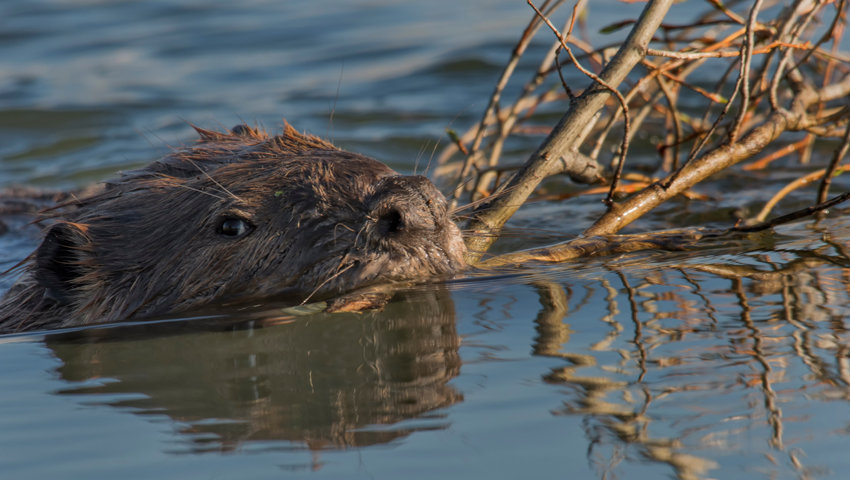An opinion piece by Sam Kenyon, vice-chair of the Nature Friendly Farming Network, Cymru
I RECENTLY took part in a NFFN webinar on beavers. The panel was two farmers who have beavers on their farms and me who doesn’t but tried to get some – once when there was a tiny window of opportunity as North Wales Wildlife Trust and our local council looked in to the feasibility.
Feedback from farmers with beavers on the land, and who have the appropriate licences so can manage size of dams and ponds, only seems to be positive.
Where beavers were not managed on the River Tay in Scotland its understood there was persecution of the animals instead of enough working groups to trap and translocate them.
In Bavaria where Beavers have been on farmland for over 20 years, the farmers union says don’t fear the beavers – just make sure you have working groups in place so that dams and ponds (and translocation to better sites if necessary) can be managed.
Because here at Glanllyn we spend so much on riverbank repairs (and during flash floods we see how desperately we need to slow the flow to reduce soil erosion and to catch nutrients) I did some research and learnt how beavers in our landscape deliver so much for nature-based solutions, especially compared to the cost of normal flood alleviation measures.
The positives were listed by Chris Jones (who farms in Cornwall) and Tom Bowser (who farms in Perthshire)- and they made for a long list:
- Their dams catch sediment and nutrients so the water leaving their ponds is so up to 80% cleaner.
- They create habitat for the 42% of wetland species that are currently at threat.
- The crops closest to their pools don’t suffer from drought as the water levels are higher.
- Fish populations are healthier and beavers are herbivores.
- Not one beaver in the UK has been found to have bTB.
- They help lower the peaks of a flood.
- They hold water back in the landscape, altering the hydrology so helping reduced soil erosion.
- They’re nature’s engineers and can do a lot for slowing the flow for the cost of working beaver groups and licensing.
- Licensing that allows scraping off the top of a dam to let more water flow if a farmer thinks it’s necessary – that’s workable.
- Cattle can shelter in the wet scrubby habitats around the pools.
Sam also explained during the webinar that the cost of creating a 27 acre natural flood management meadow, to slow the flow with scrapes and tributary diversions on her farm, will be created using funding from WG. With funding from various channels the project will cost around £250k. Sam made the point that this is all work that beavers could do from within an enclosure from a starting cost of around £30k (based on conversations with people from existing Welsh beaver projects).
Watch the NFFN webinar, Beavers: exploring the impact of on-farm reintroductions
